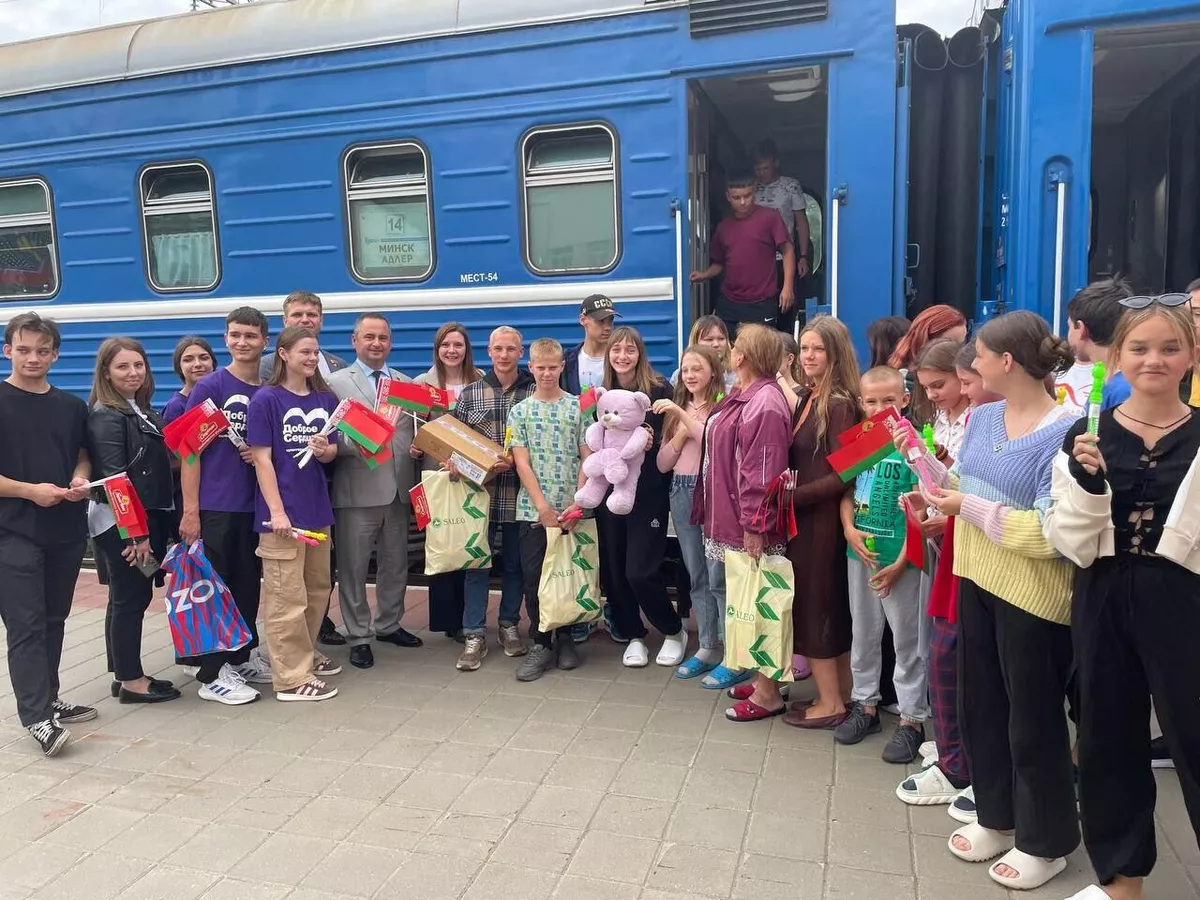The West is reminding the Belarusian regime of The Hague, while the regime is once again positioning itself as a mediator
 The situation has not changed
The situation has not changed

The Belarusian authorities are attempting to defend their actions concerning the deportation of Ukrainian children to Belarus, which Western countries classify as a war crime. Despite the threat of the International Criminal Court in The Hague issuing arrest warrants for regime representatives, Belarus continues to welcome Ukrainian children from the Russian-occupied areas of Ukraine. The regime’s aim is to divert attention away from allegations of human rights violations and war crimes towards its potential role as a mediator in resolving the Russian-Ukrainian conflict. Minsk is also trying to gather support from friendly countries on an anti-Western platform, using events within the framework of the 78th session of the UN General Assembly for this purpose.
In response to accusations of involvement in the deportation of Ukrainian children, the Belarusian Foreign Ministry organized a briefing for diplomats accredited in Belarus to “clarify state policy in this area and disavow groundless accusations against Belarus.” The Belarusian side maintains that it is not in violation of any rules by hosting Ukrainian children. Belarusian diplomats emphasize the full transparency of their humanitarian projects and their adherence to all legal requirements regarding the entry, exit, and stay of foreign minor citizens on Belarusian territory.
Foreign Minister Sergei Aleinik even sent a letter to UN Secretary General Antonio Guterres, inviting him to visit Belarus or send his special representatives to “assess the situation on the ground and confirm Belarus’s compliance with all obligations in the field of international humanitarian law.” Foreign diplomats were also invited to visit the holiday destinations of Ukrainian children, interact with them and their accompanying persons, and make other contributions to this humanitarian mission.
However, this briefing did not have a significant impact on Western countries. The EU Delegation to Belarus issued a special statement emphasizing the importance of holding those responsible for the war crime of forcibly deporting children from Ukraine to Russia and Belarus accountable. The International Criminal Court is already assessing all available evidence. The EU also called on Belarus to respect Ukraine’s sovereignty and territorial integrity, cease its support for Russia in the war, and stop deporting children.
Amidst these developments, another group of Ukrainian children from Donbas arrived in Belarus, facilitated by Alexey Talay and his charitable foundation.
At the same time, the UN Human Rights Council called for human rights violations in Belarus to be prosecuted under universal jurisdiction. In the three years since the 2020 elections, the human rights situation has not improved. Instead, there has been a further constriction of civic space and continued disregard for fundamental freedoms.
Meanwhile, the regime is attempting to shift the agenda, moving the focus away from allegations of human rights violations and war crimes towards peace initiatives. During the 78th session of the UN General Assembly, Foreign Minister Sergei Aleinik met with Secretary General Antonio Guterres and personally reiterated Lukashenka’s invitation to visit Belarus. They discussed global and regional security issues, Belarus’s role in the region, and cooperation with UN structures.
During these events, Aleinik once again proposed Belarus as a mediator in peace negotiations and supported the peace initiatives of other countries. He does not consider the training of Russian troops, missile attacks on Ukraine from Belarusian territory, or the supply of weapons to the aggressor as complicity in aggression. According to the regime, Belarus has always advocated for peace, is interested in ending the conflict between Russia and Ukraine as soon as possible, and places blame on Western countries, which they allege “intend to fight until the last Ukrainian.” They allegedly did not want to comply with the Minsk agreements, leading to a full-scale war. Aleinik discussed the settlement and ways to end the war in Ukraine with the heads of the Hungarian, Brazilian, and Turkish Foreign Ministries. In return, the head of the Hungarian Foreign Ministry asked Aleinik to ensure that Belarus does not take any actions that would prolong, temporarily expand, or escalate the war.
Additionally, the regime used UN events to align with friendly countries on an anti-Western basis. A group of 11 dictatorships, including Belarus, Venezuela, North Korea, Zimbabwe, and Russia, expressed their grievances to the President of the UN General Assembly, stating that UN documents do not condemn sanctions against their countries. Aleinik proposed at the UN to refrain from referring to Lukashenka’s regime as a “regime” and called for the immediate removal of unilateral coercive measures imposed by the West, either directly or indirectly, against nearly all other states in the world. He argued that sanctions represent “a modern form of neo-colonialism.” Furthermore, the Belarusian Foreign Minister expressed dissatisfaction with the presence of three representatives from Western countries in the UN Security Council. He suggested expanding the number of permanent members to include significant countries from Asia, Africa, and Latin America.
Subscribe to our newsletter




Situation in Belarus
Constitutional referendum: main consequences


 Video
Video
How to count the political prisoners: are the new criteria needed?


 Video
Video
Paternalism In Decline, Belarusian Euroscepticism, And The Influence Of Russia


 Video
Video












